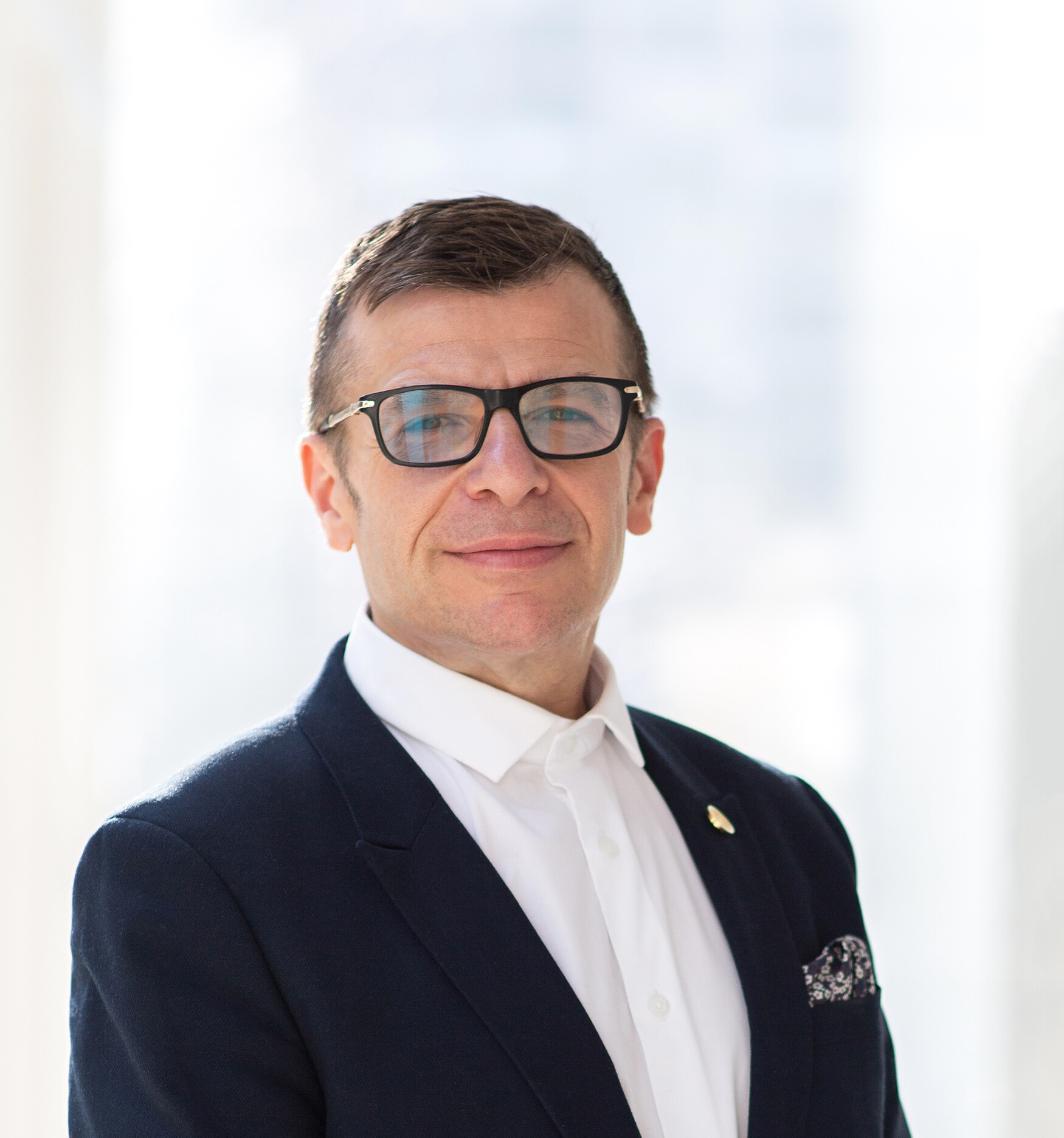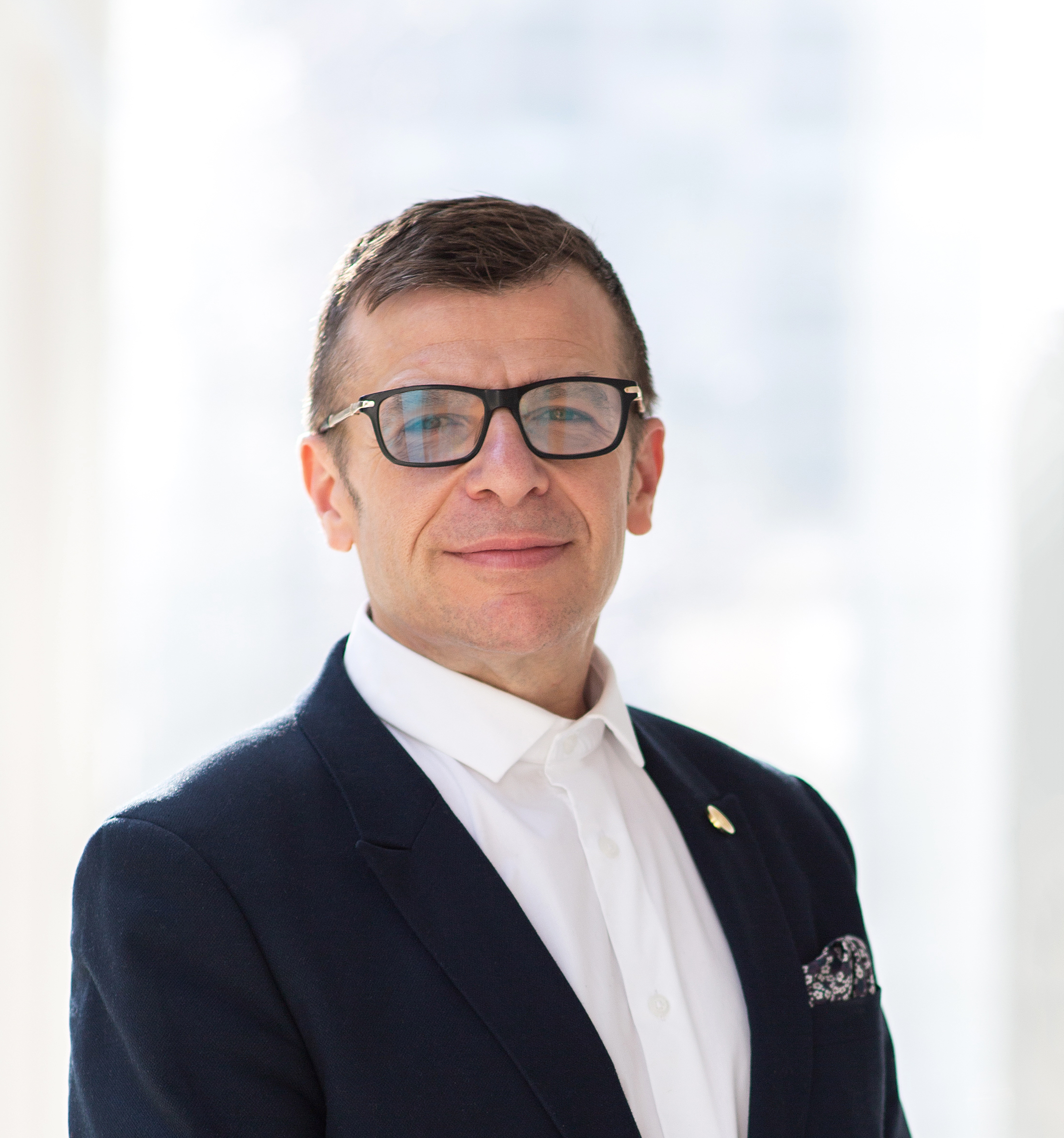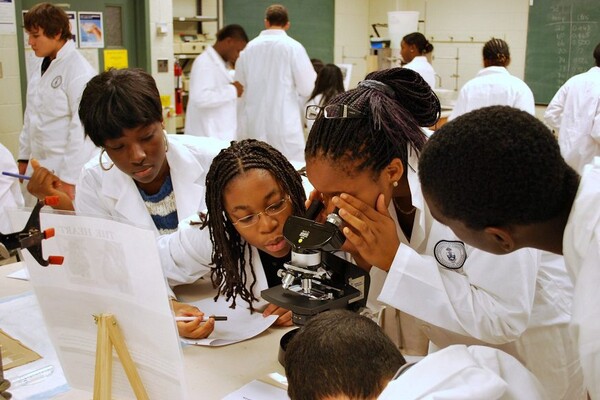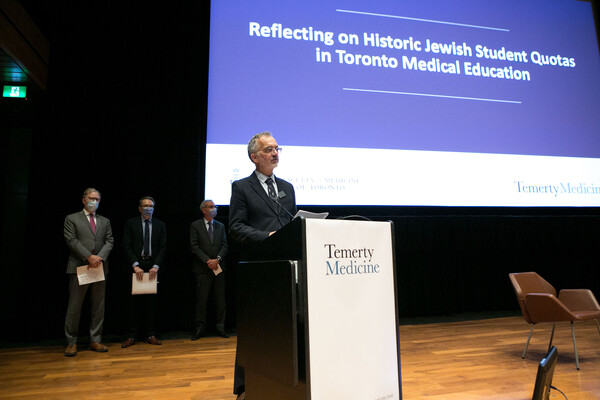
 The myth of the solitary hero is pervasive in popular culture. The tireless scientist alone at the bench. The bedside physician, confident and reassuring. The dedicated therapist coaxing just one more step forward.
The myth of the solitary hero is pervasive in popular culture. The tireless scientist alone at the bench. The bedside physician, confident and reassuring. The dedicated therapist coaxing just one more step forward.
Yet real life is not an individual pursuit. It’s a complex collective endeavour — more so than ever during a COVID-19 pandemic that is straining every part of how we live. Maximizing that collective endeavour is where our efforts have been focused at the Faculty of Medicine.
Here’s what we’ve been working on and what lies ahead.
The Postgraduate Medical Education (PGME) office has been working closely with our TAHSN hospital partners to ensure that U of T’s cadre of 3,600 medical residents and fellows are being utilized most effectively across hospital sites.
Residents training in several areas of care that are ramping down have been redeployed, many under a robust plan led by Prof. Gillian Hawker, Chair of the Department of Medicine, to ensure coverage for critical care, emergency and general medicine units while guarding against imbalances across the system. Family and Community Medicine residents, led by interim chair Prof. David Tannenbaum, have offered their services to other units at their teaching site hospitals.
Other departments are experimenting with new models. Consider Ophthalmology and Vision Sciences, chaired by Prof. Sherif El-Defrawy: as ambulatory care eye clinics wind down, senior ophthalmology residents will now take on all eye-related cases redirected from Emergency Departments. This approach will not only relieve strain on crowded Emergency Departments but also allow junior and mid-level ophthalmology trainees, with more recent experience in other rotations, to move into clinical service in areas where they may be needed, such as internal medicine.
Similar efforts to redeploy mid-level surgery residents, while asking senior residents to manage the “home” service, are underway in the Department of Surgery under the leadership of Prof. Jim Rutka.
Elsewhere across our Faculty and around the University, the community is in high gear:
Looking ahead, we know there is stress to come for our trainees, faculty and staff.
One of our key priorities is ensuring our residents, fellows and faculty are well-trained — and well-practiced — in correctly donning and doffing Personal Protective Equipment to prevent contamination. During high-pressure clinical situations, this is not as easy as it may sound. We are working with TAHSN partners to ensure consistency and frequent practice remain high on the agenda before the expected peak surge in patient care.
Supporting our faculty’s health and wellbeing is another key priority under the leadership of Prof. Julie Maggi, Director of Resident Wellness, who this week was appointed Faculty COVID-19 Wellness Coordinator. And our Continuing Professional Development unit is developing a robust suite of resources for working professionals, under the leadership of Prof. Suzan Schneeweiss.
Finally, on behalf of myself and Prof. Lynn Wilson, who has been in the role of Acting Vice-Provost, Relations with Health Care Institutions, I want to express my deep gratitude to everyone who is working so hard to support the Faculty through this COVID-19 crisis. And I’m very pleased to welcome Dean Trevor Young back into his role as of today.
Given the demands facing the University, Provost Cheryl Regehr has deferred her scheduled six-month leave, allowing Dean Young to defer his appointment as Acting Vice-President and Provost and return early from leave to resume his duties as Dean of Medicine and Vice-Provost, Relations with Health Care Institutions.
We have a lot of work ahead and, after a short break to recharge, I will be back and working closely with our leadership team to continue to support our dedicated faculty, learners and staff.
Stay well.
Salvatore Spadafora
Vice Dean, Post MD Education
Faculty of Medicine, University of Toronto


